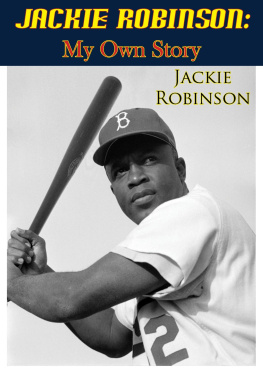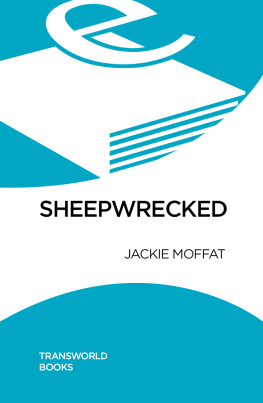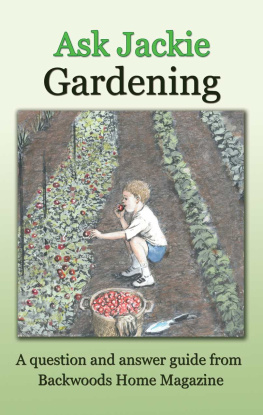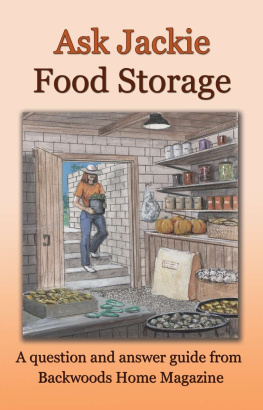Jackie Wang - Carceral Capitalism
Here you can read online Jackie Wang - Carceral Capitalism full text of the book (entire story) in english for free. Download pdf and epub, get meaning, cover and reviews about this ebook. year: 2018, publisher: Semiotext(e), genre: Politics. Description of the work, (preface) as well as reviews are available. Best literature library LitArk.com created for fans of good reading and offers a wide selection of genres:
Romance novel
Science fiction
Adventure
Detective
Science
History
Home and family
Prose
Art
Politics
Computer
Non-fiction
Religion
Business
Children
Humor
Choose a favorite category and find really read worthwhile books. Enjoy immersion in the world of imagination, feel the emotions of the characters or learn something new for yourself, make an fascinating discovery.

- Book:Carceral Capitalism
- Author:
- Publisher:Semiotext(e)
- Genre:
- Year:2018
- Rating:4 / 5
- Favourites:Add to favourites
- Your mark:
- 80
- 1
- 2
- 3
- 4
- 5
Carceral Capitalism: summary, description and annotation
We offer to read an annotation, description, summary or preface (depends on what the author of the book "Carceral Capitalism" wrote himself). If you haven't found the necessary information about the book — write in the comments, we will try to find it.
Carceral Capitalism — read online for free the complete book (whole text) full work
Below is the text of the book, divided by pages. System saving the place of the last page read, allows you to conveniently read the book "Carceral Capitalism" online for free, without having to search again every time where you left off. Put a bookmark, and you can go to the page where you finished reading at any time.
Font size:
Interval:
Bookmark:
SEMIOTEXT(E) INTERVENTION SERIES
Jackie Wang, 2018.
All rights reserved. No part of this book may be reproduced, stored in a retrieval system, or transmitted by any means, electronic, mechanical, photocopying, recording, or otherwise, without prior permission of the publisher.
Published by Semiotext(e)
PO BOX 629, South Pasadena, CA 91031
www.semiotexte.com
Design: Hedi El Kholti
Inside cover photo: Passers-by looking at bricklayers repairing a hole in Rovigos jail after militants filled a car with TNT and blew a hole in the wall to allow four women to escape from prison. Italy, 1981. (AP WIRE)
ISBN: 978-1-63590-035-4
Distributed by The MIT Press, Cambridge, Mass.
and London, England
d_r0
Jackie Wang
Carceral Capitalism
semiotext(e)
intervention
series  21
21
Contents
For LaKeyma and Emilie
All power to the feminist sleepover!
Racial capitalism is the equivalent of a giant necropolis. It rests on the traffic of the dead and human bones.
Achille Mbembe
This project began before it began, more than five years ago, when I wrote an essay titled Against Innocence. That was before the Black Lives Matter movement, during a time when taking an antipolice position was often considered scandalous, even in some leftist circles. It was a period of frenetic political activity and thinking. Inspired by the movement of the squaresby Occupy Wall Street and the global wave of revoltsmany of us partook in intense collective experiments with each other. By cooking and sharing food, starting art and mental health collectives, supporting prisoners, starting queer and people of color intentional communities, bootlegging and circulating inspiring essays, occupying buildings and public spaces, politicizing our understanding of friendship, and engaging in other cooperative activities, we suffused desire into our practices and moved politics beyond the compartmentalized realm of organizing and into our daily lives. These were political experiments, yes, but also experiments in creating new modes and rhythms of being and material social networks rooted in the reproduction of everyday life.
The event that launched this global wave of uprisings and politicized many people of my generation was the Arab Spring, and the Occupy movement that followed it. But what began as the Arab Spring has, in the intervening years, devolved into chaos and become the proscenium on which global powers use proxy warfare to flaunt their military might. A moment of possibility has since turned into six years of civil war in Syria; the economic and political implosion of Egypt, Libya, Yemen, and other nations; the revival of Russia as a global military power; and a so-called refugee crisis that has sparked reactionary movements across Europe and is galvanizing support for fascist, neofascist, populist, and ultra-racist right-wing parties.
At the time, it seemed possible to topple governments by assembling in squares, to collectively plan our futures through the peoples mic and consensus decision-making process. Some believed the revolution could be carried out through the Twitter hive mind and calls to action issued on Facebook. When the Occupy movement took off in the United States, analyses of the structural role of the policeto maintain white supremacy and capitalismwere pushed to the margins. Many argued that the police were friends of the protesters, that they were oppressed as workers and thus should not be treated with hostility and suspicion. But everywhere across the United States it was the police who evicted the Occupy encampments, often raiding the makeshift camps in the middle of the night, demonstrating once again that as soon as the status quo is threatened, the police will be used as an instrument of political repression.
So much has changed since that momentin both positive and negative directions, for the world is always moving in multiple directions. Since I began this project, I have watched the birth of the Black Lives Matter movement, which has radically transformed how racism is conceived and contested. While attending a packed panel at Harvard University on Ferguson and the history of the Civil Rights Movement, the comments of the panelists and the audience made me aware of just how much has changed in a little over half a decade. I knew that the discursive terrain had been completely transformed when I listened to the rapper Tef Poe tell the Harvard audienceto great applausethat flipping cop cars was a legitimate form of protest. Mainstream magazines and news outlets such as Time , Rolling Stone , MTV News, and The Nation also ran stories validating rioting as a protest tactic in the wake of the riots and police killings that took place in 201415 in Baltimore, Ferguson, Oakland, and other cities.
Before the Ferguson moment and the Black Lives Matter movement I felt compelled to write Against Innocence as a response to what I felt was a discursive and political impassethat is, liberalisms stranglehold on how we understand both the nature of racism and which tactics are legitimate to counter racism. As someone who has extensively researched and is personally affected by mass incarceration, I know that in the United States, blackness is associated with guilt and criminality. Though this conflation has been around for more than a centuryas Khalil Muhammad notes in The Condemnation of Blackness in the 1960s90s criminologists, politicians, and policy makers worked vigorously to consolidate the image of the black criminal in the public imagination. For this reason, it seemed counterproductive to construct an antiracist politics founded on the moral framework of innocence, whereby only respectable subjects are considered proper symbols for the contestation of racism. Such a political framework would ensure that forms of structural and state violence against those who are not proper victims would remain illegible and fail to register as a scandal. The a priori association of blackness with guilt and criminality comforts white America by enabling people to believe that black Americans are deserving of their condition and that the livelihoods of whites are in no way bound up with black immiseration. At the same time, the framework of innocencewhich fetishizes passivitydelegitimizes militant forms of revolt that may be more potent in actually challenging racism. Though the liberal antiracist framework has not been completely dismantled, I feel that the new, younger generation of activists are not so easily beguiled by the political establishment and the promise of state recognitionunlike those who just a few years ago quixotically held to the belief that it was possible for revolutionaries and the police to be bedfellows.
Not only did the Ferguson Uprising make the public acutely aware of just how constitutively racist the police are, it also attracted enough attention that the Department of Justice (DOJ) launched an investigation into the practices of the Ferguson Police Department. The investigation ultimately revealed the existence of a system of municipal plunder involving the city financial manager, John Shaw, and the police department. The DOJ discovered that not only were the police killing and harassing residents, but the city was also using the police and the courts to generate revenue to balance the municipal budget. After reading the report and researching this topic, I began to pay closer attention to news stories related to municipal and state finance. I realized that across the country, municipalities and states were increasingly dependent on the use of coercive extractive mechanisms that squeezed the people on the bottom for cash. What the fuck was going on?
Next pageFont size:
Interval:
Bookmark:
Similar books «Carceral Capitalism»
Look at similar books to Carceral Capitalism. We have selected literature similar in name and meaning in the hope of providing readers with more options to find new, interesting, not yet read works.
Discussion, reviews of the book Carceral Capitalism and just readers' own opinions. Leave your comments, write what you think about the work, its meaning or the main characters. Specify what exactly you liked and what you didn't like, and why you think so.











